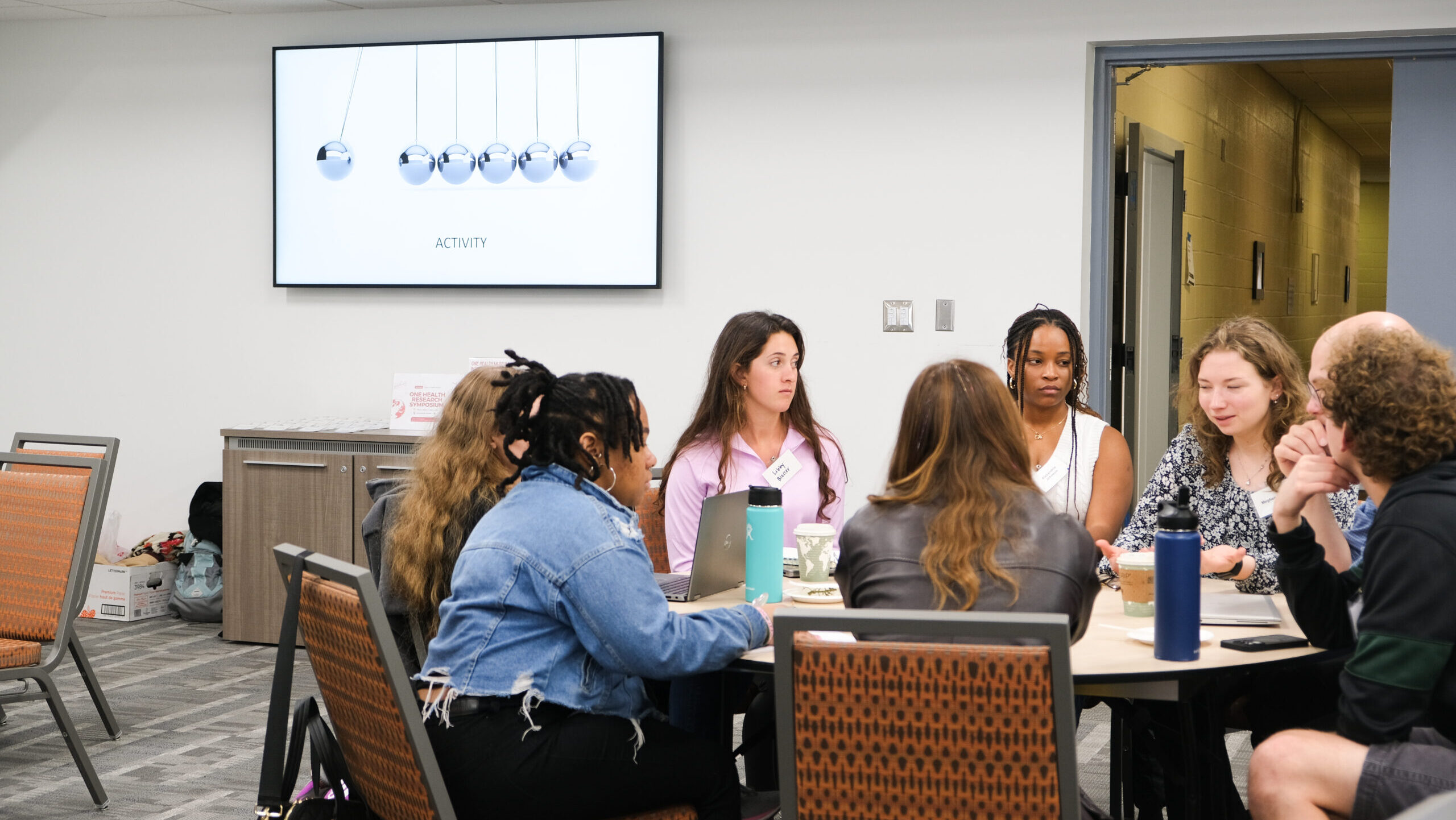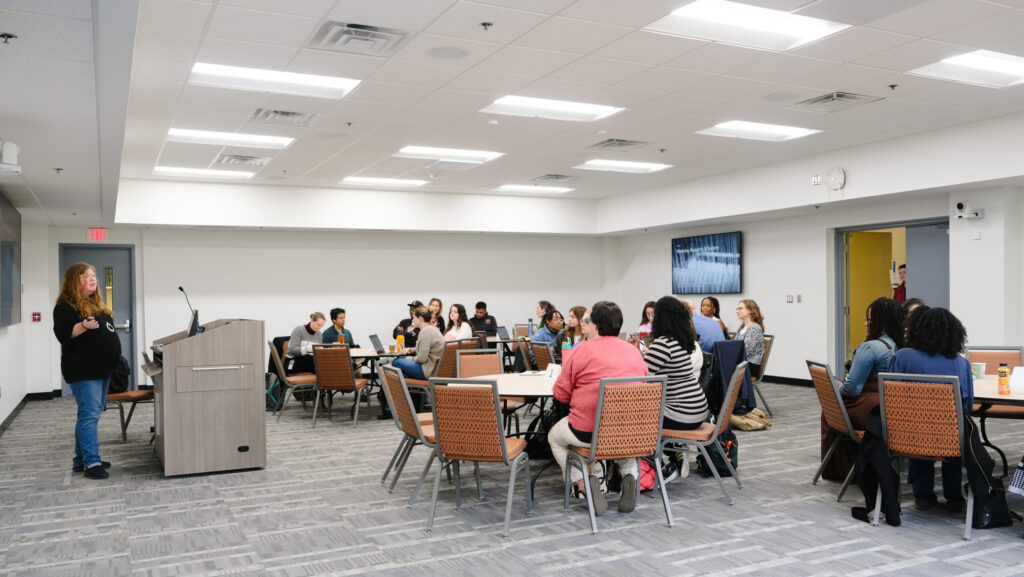Engaging Society in Research

On March 22, the Global One Health Academy along with the Genetics & Genomics Academy and the Genetic Engineering & Society Center, cohosted a workshop on Weaving Research & Society. This event is part of a series of monthly Interdisciplinary Professional Development Workshops to help graduate students prepare for a career in interdisciplinary research.
Societal engagement is a relatively new addition to traditional western science. Erin Seekamp, Goodnight Distinguished Professor and Director of the Coastal Resilience & Sustainability Initiative, presented on this topic during the Weaving Research & Society Professional Development Workshop.
Students learned about the value of actionable science, which is research done with a specific end user in mind. Actionable science is iterative and interdisciplinary, and results in legitimacy and inclusive participation. This differs from the conventional approach to knowledge production, where scientists develop knowledge and then hand it to society without considering their values or needs. Western science has been fraught with one-way communication where scientists talk at communities rather than with them to determine their needs.

Deliberative science attempts to address the flawed values of the conventional knowledge process by ensuring that all knowledge is understandable, relatable, and accessible. This process allows for the sharing, contemplating, and respecting of the various ways to interact with the natural world. It legitimizes Indigenous Traditional Ecological Knowledge (ITEK) and other local knowledges as equal to Western science. Seekamp emphasizes that we are “weaving” or “braiding” these additional knowledges into Western science rather than “integrating” them, which has negative connotations of colonialism and assimilation.
Students were also introduced to the FAIR principles for scientific data management and stewardship, and CARE principles, which were developed to ensure Indigenous data and research sovereignty. Research must be Findable, Accessible, Interoperable, and Reusable and must incorporate Collective (benefit), Authority, Responsibility, and Ethics. These principles ensure that the research is presented in a manner that is understandable and gives authority to the people who have rights to the data.
Through this workshop, students learned how to effectively engage the public and incorporate additional ways of knowing when pursuing their research. By training the next generation of scientists, we can foster knowledge production that is both actionable and deliberative.
Want More?
If you are interested in learning more about professional development, you’ll want to sign up for the next workshop. Graduate students from any disciplinary background are welcome to attend!
- April 19 | Alternative Careers Panel, Talley Student Union Rm 3210
- Categories: